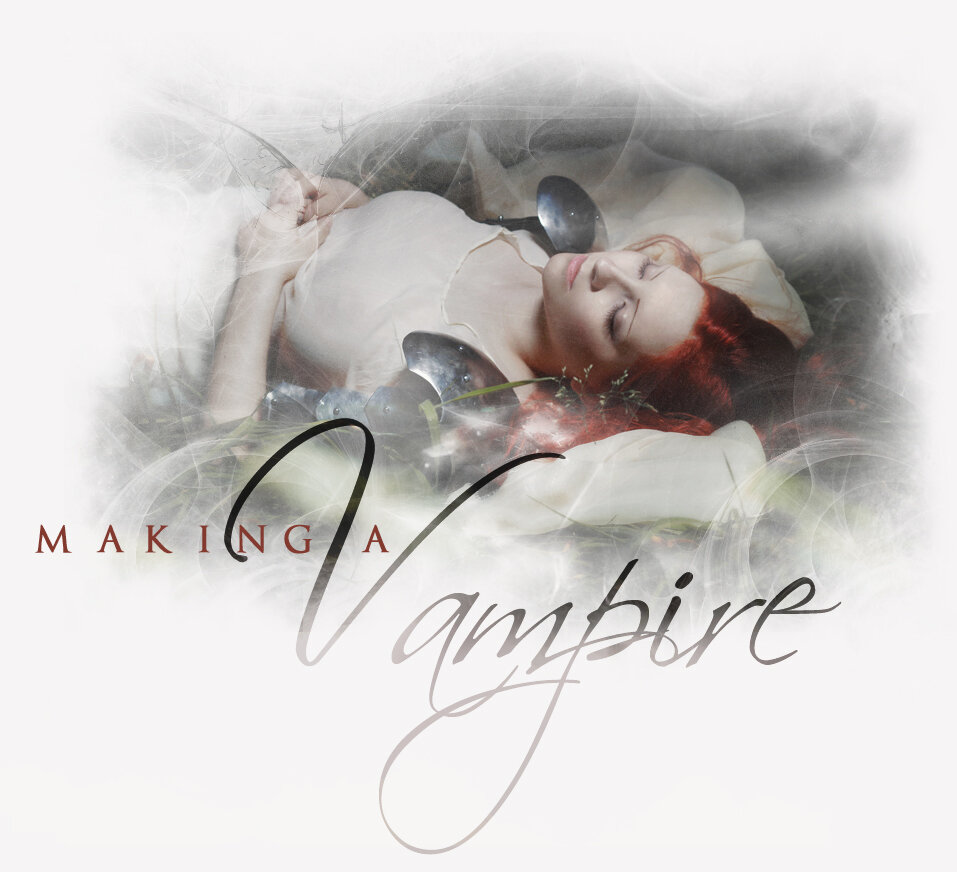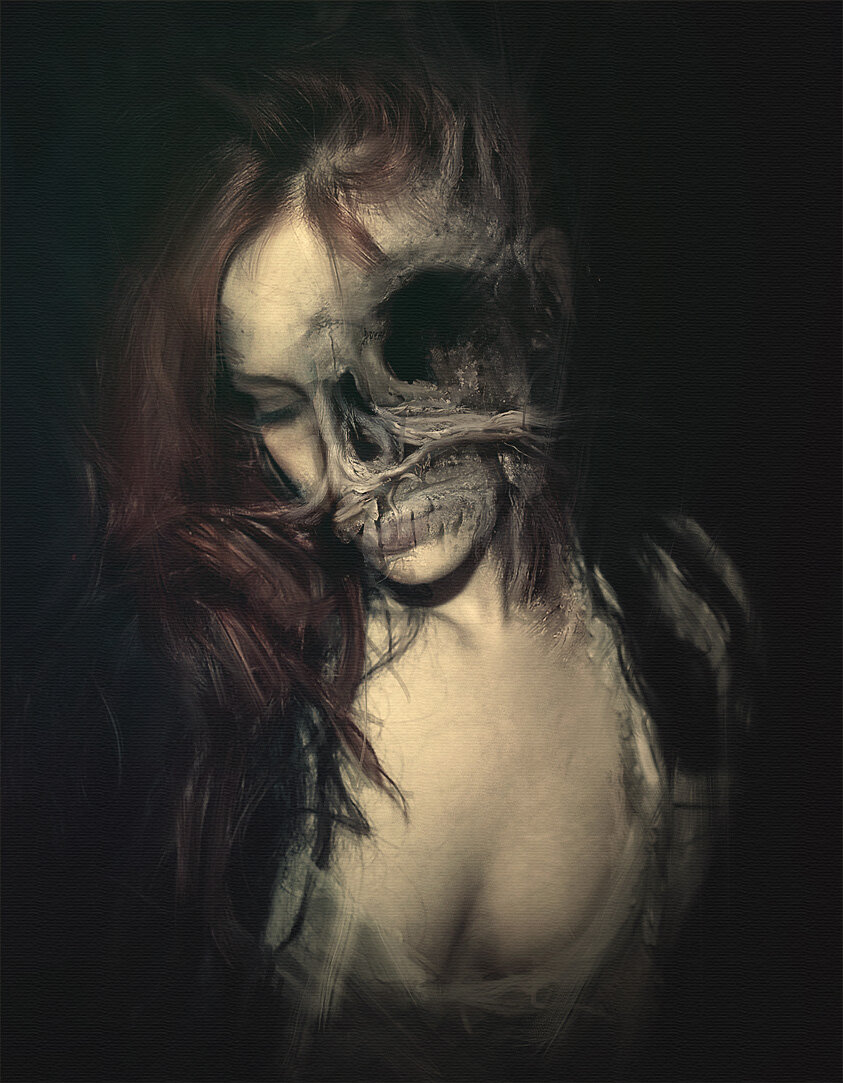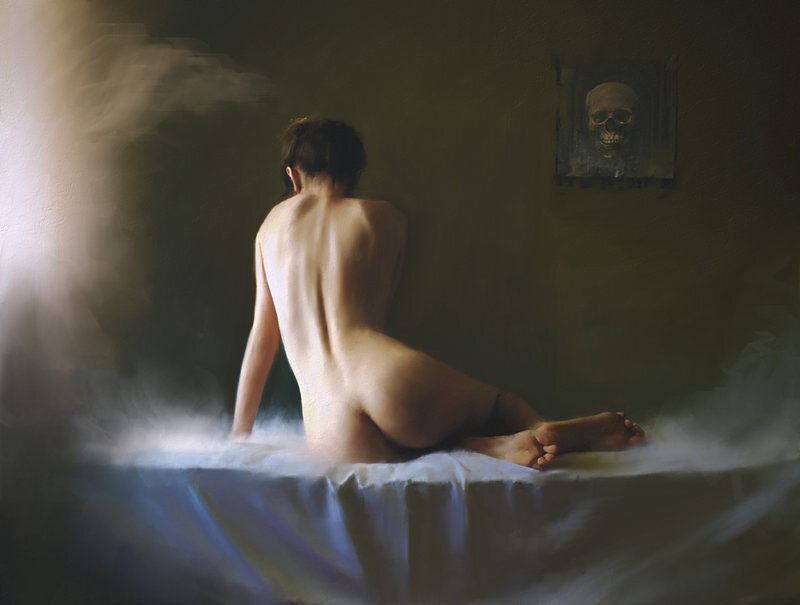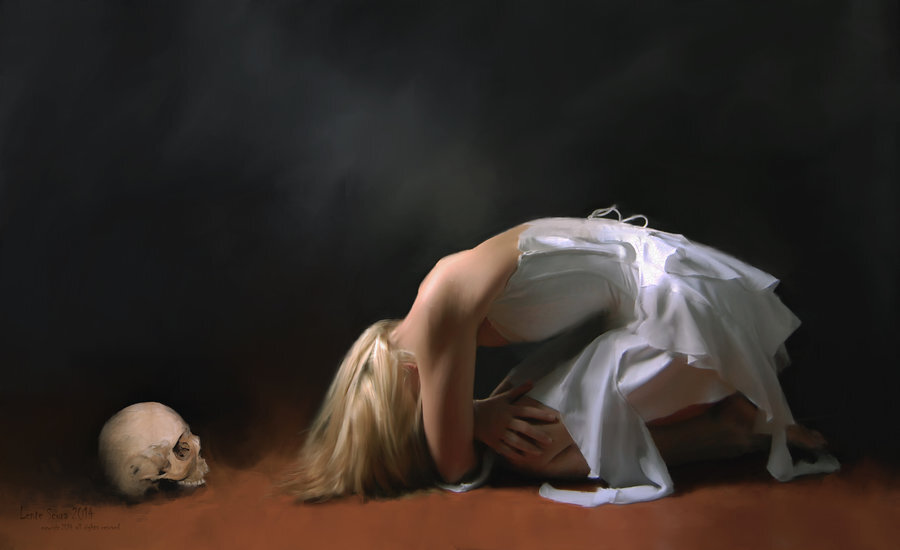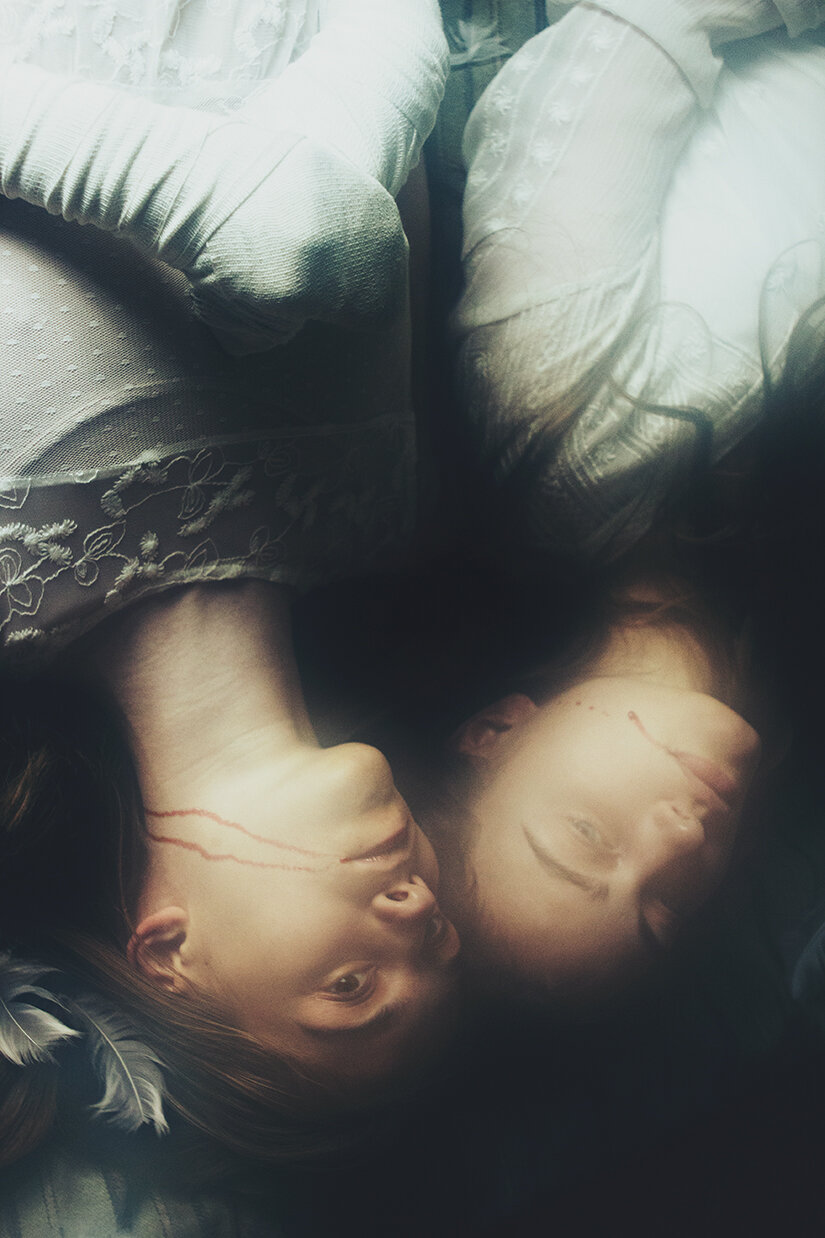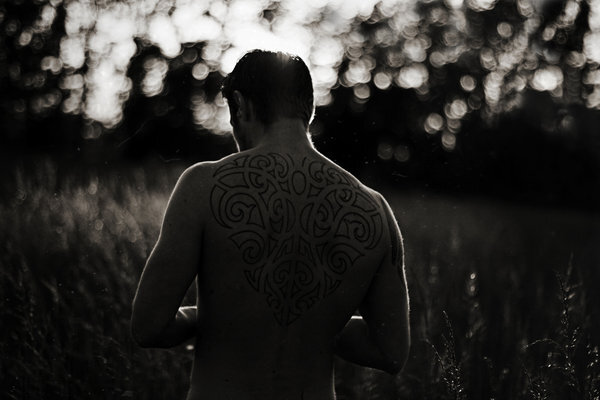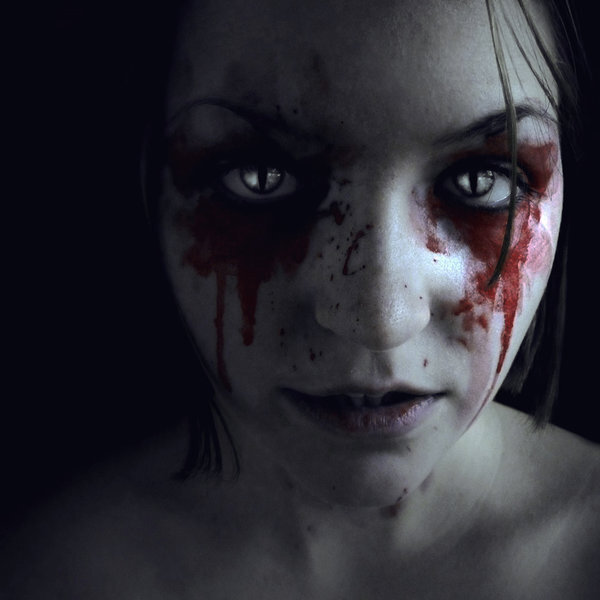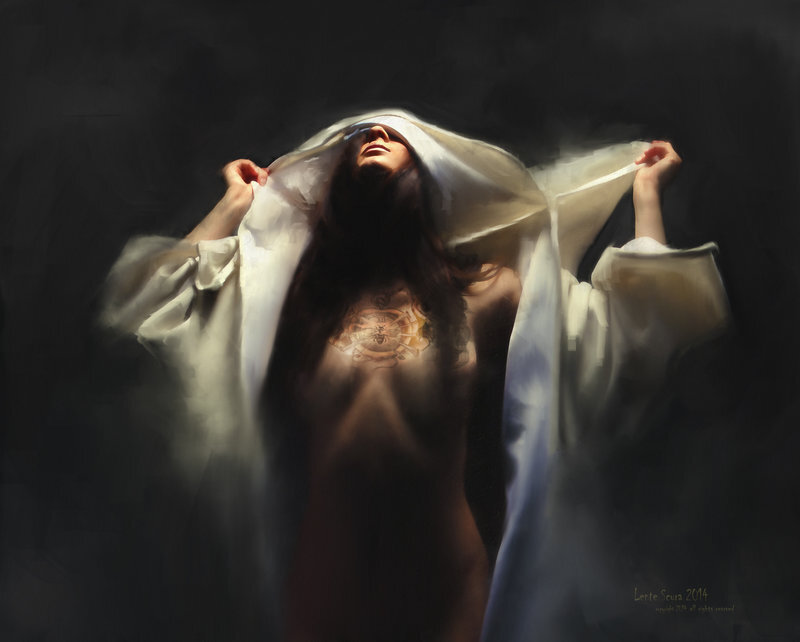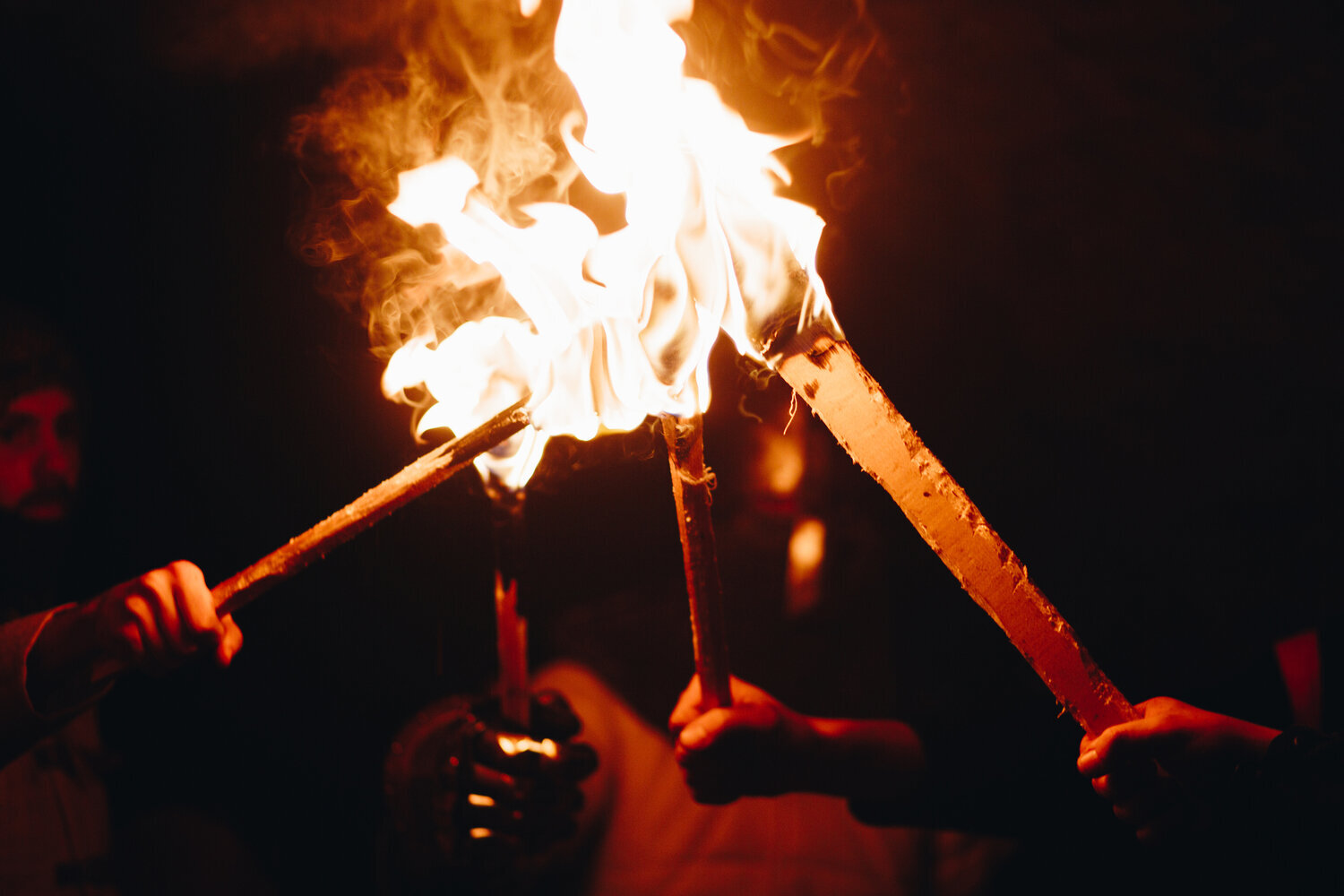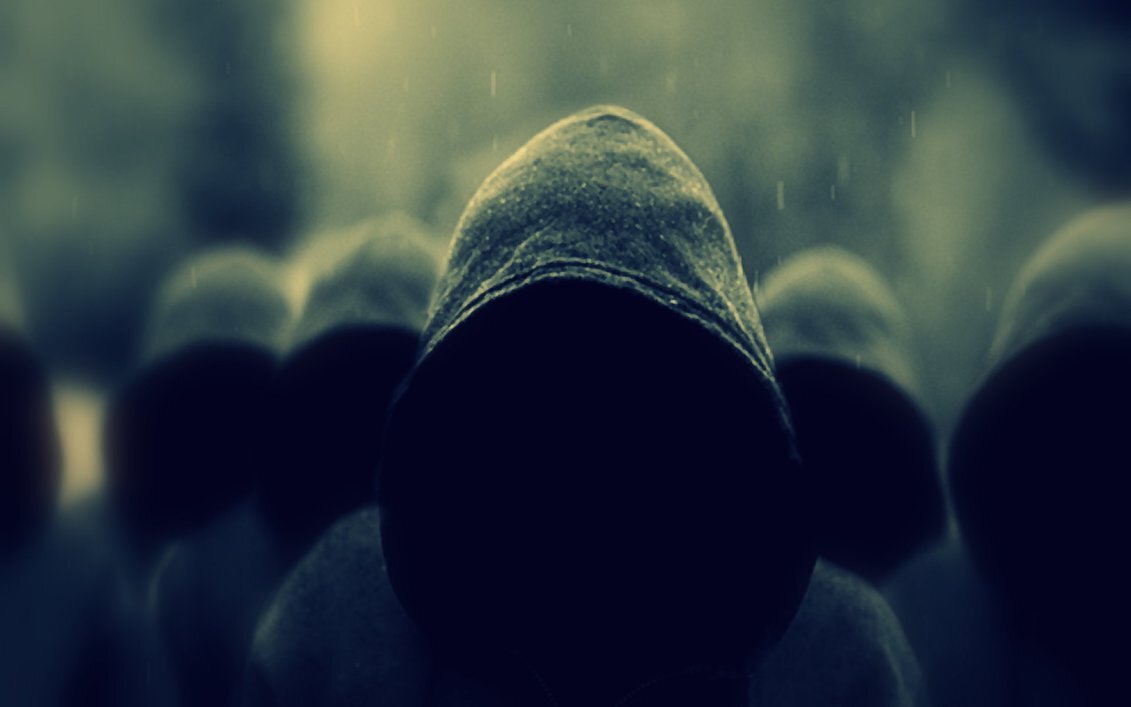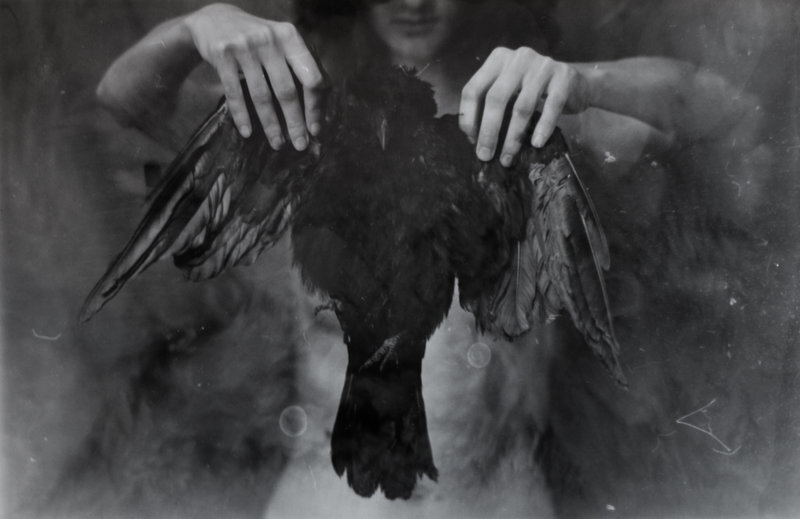Acquainted With The Night
If the startling developments of the Renaissance were awe inspiring for the mortals that lived through the early years of this paradigm shift in European history, imagine how this era of progress would have felt to the immortals of the time. After centuries of darkness - when it seemed as though the learning and advancement of Antiquity were all for nought - Europe is rediscovering the light of the knowledge of the great civilisations that came before them.
For the vampires Embraced during the height of those great civilisations, the decline of the late middle ages was for such elders a foreboding shroud that threatened to smother the blaze of all the inspiration that came in the time before, from the centuries that preceded it right down to the last desperate spark.
It was a bitter time, to see so much fade. Many elders entered a deep sleep to hide from the mental anguish and grief that such a great scale of loss brought with it - not only loss of knowledge and progress but also the shrinking of tangible assets, political power and territorial gain that they had carved out for themselves over the previous years of plenty. The years before the Renaissance were bleak years indeed.
Some of those elders never rose from their torpor but those who did - and those who managed to resist its call - continued to eke out an existence through the adversities and crises that crashed over the European continent in waves. Though the mortal population was dwindling at an alarming rate and war raged on with such ferocity that even vampires were at risk, many learned to survive in this hostile environment - and they learned to forget the glory of bygone days. Vampires who were embraced into this darkness, ancilla for age, had never known anything else and had to learn to adapt quickly to immortality in this climate or perish; they had little time for the stories of their sires that hearkened back to a time too painfully beautiful to be true.
Now it is the Renaissance, and neonates are being Embraced into a whole new era.
A Return to Grace
When the Renaissance began to rise as loud and furious as the dawn, the experience was something akin to a spiritual awakening for the elders. To see the ideologies, philosophies, education and knowledge of their time re-entering the modern world was nothing short of a miracle for the vampires who still yearned for their lost golden ages of culture and growth. As Europe began to thaw from the glacier of stagnation that was the depth of the dark ages, the human population restored itself with vigour and economy, trade and education followed greedily along with this expansion.
All the older vampires who had lived through the Dark Ages and were struggling to survive, to feed, to avoid slaughter, finally experienced respite from the endless threat of extinction. At last they could dust off their old books and their beloved artefacts with pride, flush with the hope that they would once again be able to pursue these treasured interests and hobbies of old. Even the most bitter and stingy old academics found inside them a kind of solace - quickly masked in the criticisms they had for all the idiot attempts of the mortals of the Renaissance to understand the theories and knowledge of antiquity. Some cool-blooded elders would experience the stab of plagiarism for the first time when some modern scholar would claim the discoveries of their culture as his own - but even anger could feel like sweet motivation after centuries of inertia.
Immortality is finally beginning to feel like an open road with many paths to follow, rather than an ever-narrowing corridor with no end.
For mid-aged and younger vampires who were Embraced during the Dark Ages, this brave new world offers a wealth of opportunities that they could never have imagined in their most desperate dreams. The dark is over. The Renaissance offers more than just hope to vampires who prize knowledge, culture and art - it also births a wealth of new political and institutional structures to be taken advantage of. The brutal Hundred Year War may have come to an end but new, smaller military campaigns are beginning and ending all over the continent - and they are backed by just as many new states and councils and lines of nobility. Finally, here is something for the ambitious political vampire to sink their teeth into - and with the whispers of the Anarch unrest on the horizon, even the rebels among the undead will soon have a reason to dirty their hands with the muck of politics.
But The Woods Were Lovely, Dark and Deep…
Although the advent of this new age came as a blessing for many immortals, there were plenty who did not welcome the light of the Renaissance with such zeal. After all, what are vampires if not children of the night? For those who thrive in secrecy and shadows, the darkness of the late middle ages felt less like a suffocating shroud and more like a welcoming embrace. For them, the Renaissance did not offer any long awaited illumination. For them, this new age only threatens to shine a bright and intrusive searchlight onto a clandestine way of life that they cherish just as much as the elders of the old world cherish their fallen cities. While many vampires agonised over the miseries of constant war and a record human death rate, others picked up on something tantalising drifting over the scorched earth and mass graves - the scent of opportunity.
For every problem that living in the Dark Ages could pose for a vampire, there was the potential for a profitable and even enjoyable solution. Though the scanty human population could make feeding an issue, one did not have to work as hard to dispose of the bodies - even if a mortal did come across your leavings, what was there to say that they were not simply another victim of plague or war? Mutilated bodies were everywhere, piled high in mass graves or smouldering at the pyre. For vampires with a curiosity in anatomy or disease - or perhaps just a penchant for torture and mutilation - there had never been a time where indulging in their interests without fear of discovery had been easier.
High politics may have fallen to the wayside and noble families and courts were spread thinly across the continent, but that did not mean that the prospect for gaining power over people and territory had disappeared - if anything, the volume of vacant seats and abandoned land increased exponentially. Due to a breakdown in formal trade, the underworld thrived and a savvy vampire could easily capitalise on the constant, sucking voids that death left behind. The strict hierarchy of feudalism benefits vampires immensely, as it was not unusual for a Lord of a fief to stay locked away in their castle, accessible only to their vassals - or ghouls.
Not All That Glitters
The explosion in population, trade and innovation during the early Renaissance put all these hard won gains at risk for these denizens of the Dark Ages. Humans were travelling further, faster and more frequently than they had since the peak of the Roman empire and more worryingly, they were beginning to document everything again. Maintaining anonymity is paramount to the survival of any vampire living among humans and these more archaic creatures had simply grown accustomed to not needing to take measures to conceal their identity. Why should the hunter flee from their prey? Holding to the shadows when all the world is a shade is quite a different matter to being forced back into the crevices of the world while it expands around you.
Aside from the dilemmas raised by the unforeseen progression of humankind, the changes of early Renaissance also brought about a shift in vampire politics and culture. One bloodline forged deep in the heart of the middle ages - who by all rights should never have been created and should have been consumed by the darkness around them - have burgeoned into a thriving clan of their own. The usurping Tremere no longer have to grovel for a place at the table - it is now Clan Tzimisce who are seeing their young exiled, fleeing west from their motherland as the ambitious mages drive them out of ancient castles, crumbling fortresses and once-hallowed ground.
While the newcomers rise to unforeseen heights, the young amongst the established clans grow tired of being subjugated by their elders. Just as the system of feudalism begins to crumble for mortals, the hierarchy of the vampiric establishment is being threatened by the stirring of a revolt among the fledglings of the undead. Many vampires who are content with the status quo of elders commanding neonates and childer answering to their sires blame the peasant revolts of the early Renaissance for inspiring rebellious young vampires to act against the natural order of the blood.
One hundred year wars draw to a close just for conflict to turn inwards into civil rebellion. Ancient cities fall while new ones are constructed at almost supernatural rates. An uncharted eclipse darkens the day and whispers of powerful mortals born under that black sun fill the night. The winds of change leave no hem unstirred and opinions among vampires on how to proceed in this bright new era are as polarising as any elder can recall. With such strange happenings occurring across the continent and beyond, perhaps an auction of flesh held by none other than a necromancer is the perfect place for lively debate on the course that the Renaissance may take - and how best to alter it to suit the affairs of the night.
It’s your Death
In Giovanni: The Last Supper you are invited to create a vampire character of your own - or choose one of the canon vampires that already exist in the game world. For your "Own Character" you can throw ideas to us across Facebook - it’s usually best to give us your early thoughts before falling heavily in love with a concept and writing reams of backstory, just in case it doesn’t sit well with the World of Darkness, and because we often need to make adjustments to fit a character organically and realistically into the world. (Please note, you don’t need to write reams of backstory, short and sweet is usually better. We can add depth as we go.)
Pull both primary organisers into a private message with you. We are Orion and Sable. Here are our Facebook pages, add us as friends:
If you don’t have Facebook, just hit the icon down in the footer for our game email address. Please leave 48 hours for a response. We will find you <3 It can be as vague as “Help! I love the idea of playing a noble who becomes a Ventrue but I don’t know, really how this era works for knights…?” Or a fully fledged concept with a solid idea of your birthplace, nationality, family life and career, etc. Really, just reach out to us, we love hearing from you. This is what we are here for.
Usually when you create a vampire you look at their mortal life first, and then pick whatever clan you are drawn to.
We tend to recommend vampires who are neonate and ancilla age to people who are less familiar with Vampire: The Masquerade, just because you might have a lot of social antagonism from other elder character in play who will be talking about canon knowledge, but there are clans even for elders who require less knowledge of the world. Have a glance at the Malkavians, Gangrel, even the Toreador have a good excuse to have minded their own business for centuries. The clan which is considered to have the highest/hardest startup challenge for a new player and which should generally be avoided are the Tremere. They are a very insular, tight clan with a lot of recent history and specific laws they all follow. The Ventrue have a lot of restrictive, stuffy standards of behaviour too. But really, don’t let that be a limit; if you want a challenge and are happy to take reading from us - we have each of the clan books from the Vampire The Masquerade games in PDF format (the average V:tM gamer does not read any clan book before playing; you’d be ahead) - and are keen, please, by every means. Now is a great time, and you have ages until the game!
Ultimately even new players are welcome to play a bold elder, you’re always welcome to some back-forth with us to help fit them into the world realistically.
Giovanni characters are also safe bets; you’ll have a pretty strong force of your own clan around you and many of the Cappadocian/Giovanni roleplayers are familiar with the world but able to take a familial, even mentoring role because of blood ties between your character and theirs.
The available list of "canon" vampire characters is found under the Quick Links drop-down in the main menu, should you want to play one of these rather than your own invented character. The link can also be clicked from here:
The clans are here:
Make sure you've read the Vampire The Masquerade page first if this is all new to you:
If you want us to create a character for you based on a few key points that we should work around, just ask <3
From the cradle…
To create a vampire character, it is good to start with who she was as a mortal. You can find a page on human characters over here, which includes a brief overview of the social classes.
However, when you are playing a vampire, you are not limited to the Renaissance for time, unless you would like a vampire who was herself born in the recent century: A neonate. We recommend deciding first whether she was wealthy in life, or not, as this is the single greatest divider of men and mice that exists in the medieval world, and it will shape your character mortal life almost as much as her gender.
But why would a vampire Embrace a peasant?
It’s easier to make vampires who were nobles in life. At first glance the role of the peasant seems to have little to offer the power-craving sire (a sire being the vampire who offers the Embrace to transform a human into the undead; she is your maker). The image of the Dark Medieval serf toiling in the dust and dung, labouring from dawn until dusk, is not a romantic one - and lesser still as the age awakens and blinks into the light of the early Renaissance is the cloistered, hot streets of the Italian cities any kinder.
First of all, it is worth noting that the most powerful vampires in history are drawn directly from the ranks of the old peasantry. Caine himself, the so-called father and namesake of all vampires, hails from peasant stock: "And Abel was a keeper of sheep, but Cain was a tiller of the ground" (Genesis 4:2), although some very well-informed eastern vampires might tell you that this wasn't a story about a poor man but rather a man who lived in a time before the divides of wealth even came into being, in Ancient Mesopotamia.
Western vampires know nothing about all that, however. To them he is Caine (for that is his name to them), cursed for killing his own brother - a heinous crime that is both the first murder and the first kinslaying. According to the vampire creation myth, this curse damns Caine to his eternal unlife, to wander the Land of Nod, alone and lost.
Only the most exceptional peasants are ever selected to shake off their mortal coils, and become undead. While a noble might be chosen on the basis of his wealth, influence, fighting skill or family connections, a peasant has seemingly little to offer. In fact, the only advantage the mortal peasant might bring to his immortal existence is his personal strength of character or, conversely, the intensity of his depravity.
Peasant vampires are fearful adversaries. They have been tempered, first in the crucible of mortal suffering, and then in the furnace of their neonate vulnerability. While a noble might use his temporal resources to buy off the consequences of an early misstep or enmity, the Cainite peasant has little collateral to secure the loan of the early nights of his unlife.
The main advantage of the peasant neonate is her potential.
Remember, it is extremely rare for any mortal to be selected for the Embrace. At the end of the Dark Medieval period with all the chaos of the Crises, the plague and war shredded vampiric society as surely as it did mortal - it is only now beginning to recover. Unlike mortals who feel driven to have children during periods of unrest, vampires often go to ground and even dispose of additional mouths to feed, focusing on their own longevity and future rather than cultivating new progeny. After the last era, caution is at an all-time high among the damned. There are fewer openings now than ever.
Only the most exceptional humans are chosen for the Embrace during periods of unrest, when resources are low and stressors high.
The mortal peasant is less likely to be Embraced than a nobleman or clergyman. The peasant neonate invariably possesses frightening reserves of raw strength, character, talent or determination. The drawback here, of course, is that these elite recruits are often earmarked for highly specialised and potentially fatal duties.
Where does your vampire live?
It is difficult to find a good haven in the city. Mortal tenements are poor places to hide: Rooms are small, walls are flimsy, people love to gossip and the neighbours are in an excellent position to watch people come and go. The streets are narrow and usually crowded. Even the slightest peculiarity in a pale stranger will likely be noticed immediately. In the countryside, vampires can usually find caves, abandoned buildings, or isolated cottages, but a city has no wasted space. Still, the concentration of blood makes a city irresistible, and vampires adopt a number of different strategies for hiding themselves in the cramped urban environment - any hunger makes the Beast very dangerous, and likely to blow its cover even in the country. Many vampires weigh up the risk and time and time again decide it is worth risking the city, so as not to starve.
Rich vampires can always take the easy way out of building themselves suitable havens (or safe vampire bolthouses) from scratch, taking care with the shutters, drapes and windows. The average Italian palazzo is luxurious enough to suit any vampire; one of its myriad of rooms can easily be bricked off, forming a completely lightless chamber. Other vampires prefer to put their bed in the cellar, where it is less likely to be affected by fire or sunlight.
For those who cannot afford an entire house, a suite of large contiguous rooms is often the wisest, although, since there are always neighbours, the risk of discovery is greater.
Any house of substantial size needs to have a visible resident who carries out normal activities in the daytime, to better cover the vampire. Therefore rich undead often allow a favourite ghoul to assume nominal ownership of the house and to keep their own vampiric presence as secret as possible. Vampires wealthy enough to pursue such lifestyles are likely to be old and paranoid - yet, able to maintain one or more emergency havens.
Poorer vampires have fewer options. They can rent or own one of the numerous thin-walled shanties that huddle in the poorer areas of town, but since these usually have only two rooms, both of which probably have windows, they may be unsuitable. Furthermore, it is easy to count the number of residents going in or out of such a dwelling, or to overhear the voices inside. If these do not tally, neighbours may catch on.
Suspicions and jealousy may also be aroused if only a single renter moves in, as these buildings typically house entire families.
It’s a great idea to think about all the trouble your vampire has just getting by each night - how they feed, how they live, which neighbours they hate - because you can bitch about it in character, during the game.
We have players coming from all over the world; your home country will be totally alien to many people playing, and they’d love to hear about it from the perspective of a vampire.
We all like to vent about our woes, and vampires have many of them indeed. Besides, there will be humans present, humans who are going to become neonate vampires themselves soon, and thrust out into this difficult world. They would be ideal candidates to share some of this reality with (it makes the world feel much more real when conversations in roleplay can features day-to-day or night-to-night details of things you do as your character.
Vampires can also risk living in a tenement building, though this foolhardiness is bordering on suicidal, even with the aid of Dominate, Obfuscate and an entire family of human servants loyal. The truly destitute must live on the streets, hiding themselves in a different place each night: in garbage, in warehouses, under construction materials or in the earth itself.
Sometimes the countryside or an outlying village is a safer choice. The wilder parts of the countryside offer all the usual hiding places - and they might even be safe from werewolves which take to the wild, old places. Villages have greater space between buildings and uninhabited sheds and outbuildings. Even the city walls might have their refuse-pits, hollows in the masonry and underground culverts.
Affluent vampires might find rural villas attractive havens. All of these options have the same disadvantage - the hungry vampire must find some way to enter the city each night or accept the slim pickings in the country.
Finally, the city may offer Nosferatu vampires and other under-dwellers a variety of labyrinths to choose from. Many communes build networks of fountains and aqueducts to supply their city with fresh water. Unbeknownst to mortals, these systems also often sport dry chambers, raised platforms and other makeshift refuges. Surface fountains, especially large and elaborate ones act as gateways into and out of the system, and the aqueducts provide conduits to the remote wilderness. Unexplained deaths and disappearances often take place near the fountains at night at the claws of canny vampires.
Inspiration
Think about who your vampire influences in the mortal world
Vampire influence permeates all of communal society. Exactly where vampires ply their Disciplines and influence depends on personality and opportunity as much as anything else. If one has the money and connections, any class has its own merits as a sphere of influence. The vampire who controls the city's weaver may not have much prestige and live in some pretty awful places, but she could bring the city's lucrative cloth industry to a grinding halt if she so chose - not to mention there's gossip to be had among the crafters.
The appeal of the wealthy noble and non-noble magnates is obvious. They control much of a city-state's property and commerce and are the driving force in politics. A vampire who hides among them receives the best of all worlds, or so it seems: ready control over the mortal world, abundant material possessions, and a luxurious unlife. However, so desirable in this position that weak vampires often find themselves unable to maintain it. There are only so many noble families to go around - and if both an elder and a neonate wish to control one, the elder always wins out.
A group of artisans does not have the prestige of nobility or even a wealthy merchant family, but offers its own subtle rewards to the vampire who takes the time to assume control of it. A single industry may make up the mainstay of a commune's trade. Vampires who have leverage over industry production always have a ready supply of money and political capital. The money comes from Dominated ghouls or servants; the political power arises from threatening to use the industry against some other vampire. Even a small but essential group, potters for instance, can be worth controlling. The vampiric Prince might never come begging for a favour - but every once in a while, there will be some money skimmed from ceramic sales, and maybe, just maybe, some elder may wish to use certain contacts in a scheme. That's when they bargain.
The clergy of Italy presents the same rewards and dangers as that of everywhere else. In times gone by, the bishop of a city acted as its primary negotiator and power figure. Subordinate towns would swear allegiance to him, and embassies would meet with him. No longer. The Bishop might still have a ceremonial place beside the consuls in some towns, but even by 1197, all real secular power has transferred to the council and its representatives. The clergy are important only for the property they own and the spiritual authority of their office, not for any special place they might occupy in the Italian scheme of things. Vampires who wish to control the clergy may gain the predictable rewards - influence over excommunication decisions, sensitive information about the confessional, access to the wealth of the Church - but the vampire must be aware the predictable dangers as well... notably True Faith.
Commoner vampires may seriously consider living among (and manipulating) the lowest class. The masses of urban poor have easily inflamed resentments that are not adequately addressed. The poor live at the sufferance of the rich, their wages are miserable and they often have no voice in politics. Since they work as hired individuals rather than the true peasants of the past, they cannot even count on the protection of a feudal lord. A supernatural ally can offer them hope and can use her influence to control the political mood of the lowest class. Even noble vampires fear riots; they treat handsomely the soothsayer who can prevent one - or placate the firebrand who threatens to unleash urban violence.
From Mortal to Immortal
Take care not to confuse a vampire's rank or even her gender during mortal life with her role after death. Death is a great social equalizer. Here, slaves and emperors can meet on level ground. Though for most neonates they do indeed stick to the familiar - as much out of necessity than desire - there are exceptions.
The dramatic changes of the Embrace and the discovery of her new powers can drive a vampire into a deathstyle very different from her mortal lifestyle, though it is not always the case. Many neonates try to take up the trappings of mortal nobles, things they could never have had in their own lower born life, setting themselves up as ladies or lords over men. There are many stories however when a neonate achieves this only to find themselves at the teeth of a much greater vampire, who has already a subtle (or unsubtle, for the fool neonate) claim on the family, but this is partly the reason why it pays to be so cautious as a fledgling.
The change into a vampire can just as easily herald a neonate into the arms of the clergy. Fired by a single-minded pursuit of the spiritual, the childe grapples with her personal dark angel, trying to grasp or understand the change that has so been wrought in her.
The Embrace also drives many higher born vampires into the peasant lifestyle as they flee the familiar confines of the mortal community for the wilder, untamed regions of Europe. For some it is a matter of exile; for others, penance; for others still, survival.
